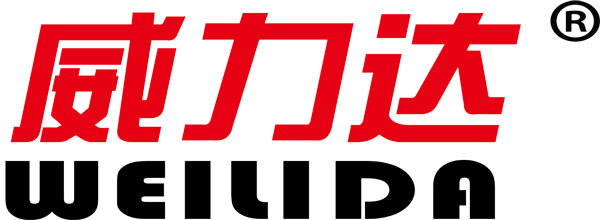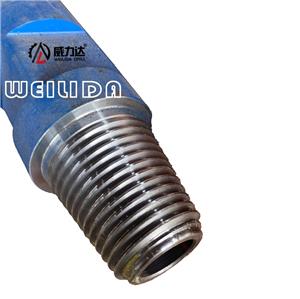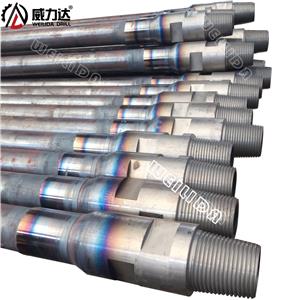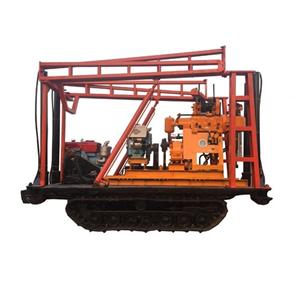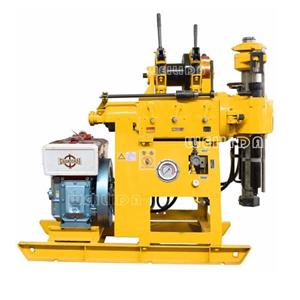- Home
- >
- News
- >
- Trade News
- >
- Cheap Oil Probe Facility Price, Buy Oil Plumb Apparatus Brands, Cheap Fuel Sample Facility Factory
Cheap Oil Probe Facility Price, Buy Oil Plumb Apparatus Brands, Cheap Fuel Sample Facility Factory
Cheap Oil Probe Facility Price, Buy Oil Plumb Apparatus Brands, Cheap Fuel Sample Facility Factory
The oil giant that was ‘forced to shrink to greatness’
Eight years ago, the oil giant BP was struggling to cap an out-of-control exploration well that was gushing oil into the Gulf of Mexico. Tar balls had washed ashore on the Texas coast. A flotilla of boats was trying to skim or burn oil from the water’s surface.
At BP’s Houston exploration headquarters, engineers and geologists — as well as much of the rest of the country watching at home — were transfixed by live silent video of the well being illuminated against the dark sea floor by underwater robots. It was like watching the company’s lifeblood pour out of the ground and seep into the murky gulf.
But BP has survived. The 2010 oil spill, triggered by a blowout that killed 11 workers and toppled the Deepwater Horizon drilling rig, “shook the company to its core,” says Robert Dudley, a low-key American from Mississippi who took charge of the storied company formerly known as British Petroleum.
Since the blowout, BP has sold off $75 billion of assets to cover unprecedented government fines, private damage claims and legal bills. It has retooled facilities, ousted two top executives and been lucky with the ups and downs of oil prices. Now it is once again investing profitably in massive oil and natural gas projects, including a Caspian gas pipeline, wells offshore Egypt and the fracturing of shale gas rock formations in east Texas.
“The company has transformed itself. It’s a tighter, more compact company than it was,” Dudley said in a recent interview, adding that BP had brought online seven major projects last year and would add six more this year — “more projects than ever in our history.”
“They have been forced to shrink to greatness,” said J. Robinson West, managing director of the Boston Consulting Group’s Center for Energy Impact. He said that the company got rid of some “lousy assets,” often at high prices, and that “the resulting business is smaller but better.”

The $44 billion Shah Deniz 2 pipeline project came online last month, carrying natural gas from the Caspian Sea through Azerbaijan and Georgia to Turkey. The pipeline will unlock gas produced through 26 subsea wells. (Konstantinos Tsakalidis/Bloomberg News)
In the midst of the spill crisis, Dudley took over BP from Tony Hayward, a geologist who had spent his entire career at BP. At the time, many underestimated the humble Dudley, who said then that “I did not seek out this job.”
Yet Dudley has “turned out to be a more commanding figure than a lot of people initially thought,” West said. “The entire organization was really in bad shape. Utterly traumatized. Bob got them to take a deep breath and start moving forward.”
The 2010 oil spill, triggered by a blowout that killed 11 workers and toppled the Deepwater Horizon drilling rig, “shook the company to its core,” says Robert Dudley, a low-key American from Mississippi who took charge of the storied company formerly known as British Petroleum. (Chris J. Ratcliffe/Bloomberg News)
At one point during the spill, Dudley wondered whether BP would survive. The value of BP’s bonds crashed as investors scrambled to sell. The company dropped its stock dividend to zero, sending shock waves through Britain, where BP accounted for 1 of every 6 pounds in dividends paid to pension and other retirement funds.
In the United States, the Obama administration was under pressure to put the company out of business by blocking permits for offshore drilling or imposing even steeper fines. When Interior Secretary Ken Salazar, talking about the gulf cleanup, said the administration would “keep our boot on their neck until the job gets done,” it was typical rhetoric at the time.
But the company persevered. And over time, BP — which suffered a string of accidents including a major refinery explosion in Texas — overhauled its facilities and gave every employee the power to stop an operation if safety were at stake.
The government noticed. “I refused to impose the administrative deep-water death penalty on BP in 2010-2011, and I’ve never regretted that decision,” said Michael Bromwich, whom President Barack Obama tapped in June 2010 to be the top regulator of offshore drilling safety and now runs a consulting group. “BP was appropriately remorseful and dealt with us forthrightly and transparently. They fully cooperated with our investigation and with countless others.”
Other big oil companies did not provide much support; their executives, most of whom never liked the British firm and its longtime chief executive John Browne, disparaged BP and said it was an outlier when it came to safety. In fact, almost every company had its own disaster: Chevron had a gas well that burned uncontrollably for months; Shell had trouble keeping its pipelines safe from insurgents in Nigeria’s restive delta; a Thai-owned rig spilled oil off the coast of Australia for 74 days.
“The rest of the industry tried to paint BP as the black, noncompliant sheep of the Big Oil family,” Bromwich said. “That was its way of arguing that company-specific rather than industry-wide reforms were called for. We disagreed with that line of argument, and independent studies exposed it as nonsense.”
Once BP reached an initial agreement with the Obama administration to set up a $20 billion fund for damages, fines and coastal science research, Dudley figured the administration would want to keep BP around to pay for all that.
Now years later, scientists and other experts are still monitoring the condition of the gulf, and lawsuits related to the last 300 claims for economic damages continue.
“It’s odd because from a Louisiana point of view, the BP blowout and its subsequent funding has provided important moneys for coastal protection that otherwise would have been unavailable,” said Oliver Houck, who teaches environmental law at Tulane University. Although some people’s health was affected, Houck said, “biologically, in terms of the terrestrial impacts, the marsh impacts were relatively minor given what else is going on down there. They were but a drop in a really nasty bucket.”

BP's Mad Dog oil platform in the Gulf of Mexico in 2016. (Marc Morrison/BP)
Facing a slew of lawsuits, BP quickly sold its assets and ended up reaping the benefits of high crude oil prices. It sold pipelines, storage facilities and other infrastructure while hanging on to oil and gas prospects. Against the advice of consultants, the board voted to keep refining and marketing operations that later provided a cushion when oil prices dropped.
One major error: It sold old Permian Basin acreage in Texas just as the shale drilling boom was taking off and turning that aging conventional field into a hot new shale prospect.
Lately, though, BP has begun growing again.
It shows the imposing scale of the oil and gas business. BP is producing about 3.6 million barrels of oil and oil equivalent a day, about 10 percent less than before the Deepwater Horizon incident but more than most members of the Organization of the Petroleum Exporting Countries. Moreover, BP’s output was up 10 percent last year and is expected to keep rising.
To achieve that, BP has cast a wide net for new prospects, including offshore Brazil and the Ivory Coast, while driving down exploration costs by 46 percent.
It has created an autonomous unit for the Lower 48 states, trying to duplicate the aggressive, creative approach used by independent U.S. drillers. Though BP had little interest in the rich Haynesville shale gas area in east Texas, over the past two years, it has quadrupled its acreage in an area it calls SoHa, for south of Haynesville. Production started at zero and could climb to 150,000 barrels a day in the next four or five years.
BP has stayed committed to the deep waters of the Gulf of Mexico. Its net production climbed to 304,000 barrels a day of oil and oil equivalents in 2017, up 20 percent in three years though still below the level at the time of the spill. The company also owns unexplored acreage there.
This year, BP will squeeze more oil from the British North Sea fields that have been seen as in decline; it plans to double its production by 2020.
Many projects focus on natural gas.
Last year, the company started producing substantial shale gas from about 200 wells in Oman. This year, it is adding natural gas and condensate production off the coast of Egypt.
The $44 billion Shah Deniz 2 pipeline project came online last month, carrying natural gas from the Caspian Sea through Azerbaijan and Georgia to Turkey. The pipeline will unlock gas produced through 26 subsea wells. The company plans to extend the pipeline through Bulgaria, Greece and Italy.
All this requires petro-diplomacy by Dudley. One BP executive said Dudley traveled to Iraq when other senior managers worried about safety. He visited Iraqi governors in Kirkuk and the prime minister in Baghdad. Later, at a State Department meeting, he recognized and greeted a diplomatic staffer he had met at a meeting in Baghdad two years earlier.
